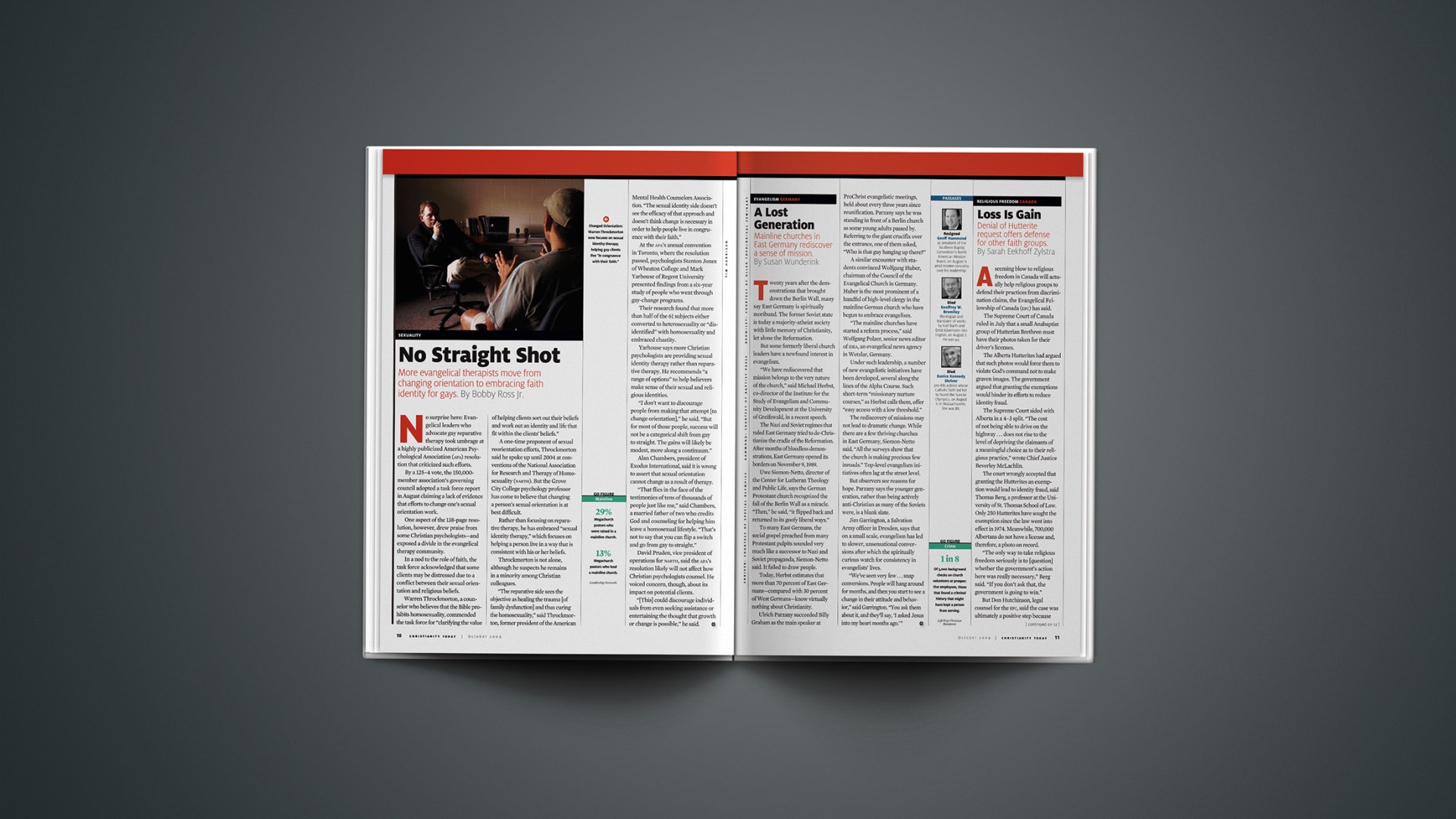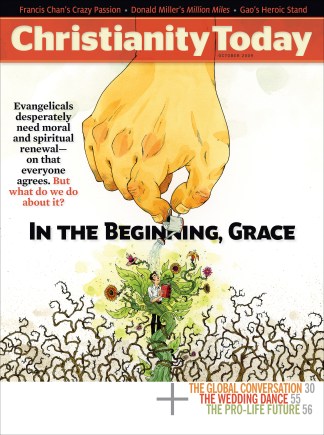A seeming blow to religious freedom in Canada will actually help religious groups to defend their practices from discrimination claims, the Evangelical Fellowship of Canada (EFC) has said.
The Supreme Court of Canada ruled in July that a small Anabaptist group of Hutterian Brethren must have their photos taken for their driver’s licenses.
The Alberta Hutterites had argued that such photos would force them to violate God’s command not to make graven images. The government argued that granting the exemptions would hinder its efforts to reduce identity fraud.
The Supreme Court sided with Alberta in a 4-3 split. “The cost of not being able to drive on the highway … does not rise to the level of depriving the claimants of a meaningful choice as to their religious practice,” wrote Chief Justice Beverley McLachlin.
The court wrongly accepted that granting the Hutterites an exemption would lead to identity fraud, said Thomas Berg, a professor at the University of St. Thomas School of Law. Only 250 Hutterites have sought the exemption since the law went into effect in 1974. Meanwhile, 700,000 Albertans do not have a license and, therefore, a photo on record.
“The only way to take religious freedom seriously is to [question] whether the government’s action here was really necessary,” Berg said. “If you don’t ask that, the government is going to win.”
But Don Hutchinson, legal counsel for the EFC, said the case was ultimately a positive step because while the justices split on license photos, they unanimously agreed that freedom of religion has an “identifiable collective aspect.”
Hutchinson said the court’s precedent will help in ongoing cases like that of Christian Horizons, a ministry to the disabled. Last year the Ontario Human Rights Tribunal ordered the charity to pay a former lesbian employee $23,000 for terminating her employment. It also ordered Christian Horizons to abolish its employment rules barring homosexual activity, extramarital sex, pornography viewing, and other activities.
“Individuals [in Canada] are challenging the ability of a religious group to require them to conform in order to belong,” Hutchinson said. By affirming the right of religious groups to define their own beliefs and practices, the Hutterite decision puts individuals in the position of either identifying with a group or leaving it, he said.
Copyright © 2009 Christianity Today. Click for reprint information.
Related Elsewhere:
Members of the Hutterite communities are asking the Supreme Court of Canada to review their case again.
Previous articles on Alberta v. Hutterian Brethren of Wilson Colony include:
Hutterites lose fight over photo licences | Colony may leave Alberta (Calgary Herald)
Hutterites lose battle over photos | Members of the Wilson Hutterite Colony are shocked and disappointed following a decision by the Supreme Court of Canada that all driver’s licences in Alberta require photo ID. (Lethbridge Herald)
Previous Christianity Today articles on religious freedom include:
Let It Snow | Ruling on pollution of sacred mountain may weaken religious freedom. (July 15, 2009)
‘We’re Not Actually Advancing Religious Freedom’ | Thomas Farr says it’s time for policies that actually improve liberty around the world. (April 14, 2009)
See No Evil | International religious freedom has been too low a priority. (October 23, 2008)










